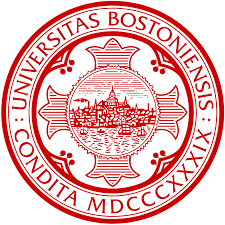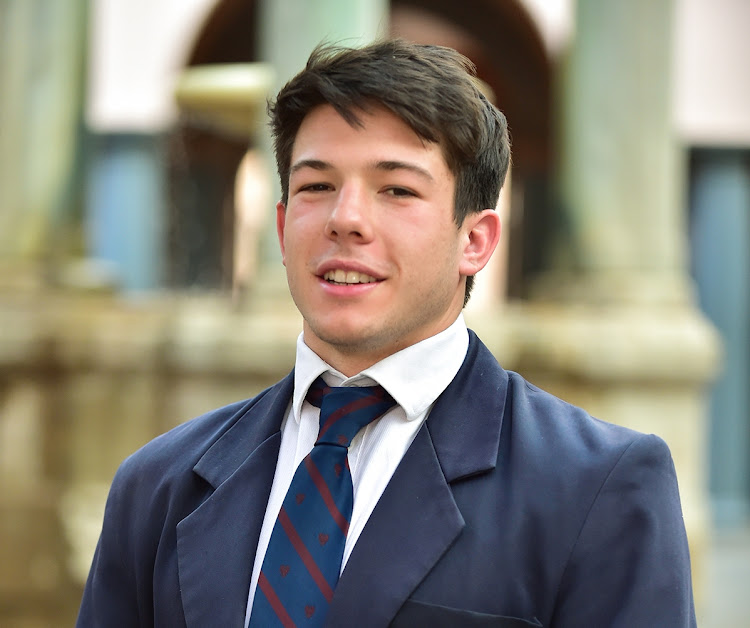






























"With the help of Crimson, I'm now a Hockey player at Marian University." - Ella


Premier Division I program known for its competitive excellence and state-of-the-art facilities including New Balance Field. The program has consistently ranked in the top 20 nationally and competes in the prestigious Patriot League. Under head coach Sally Starr's leadership, the program has produced numerous All-Americans and USA Field Hockey National Team players. The team's impressive facilities include video analysis capabilities and sport-specific strength and conditioning programs. Notable alumna Valentina Cerda Eimbcke represented Chile in multiple Olympic Games, demonstrating the program's ability to develop international talent. The program's commitment to excellence extends beyond the field, with student-athletes maintaining one of the highest GPAs among BU athletic programs.

Powerhouse program with multiple NCAA championships and a tradition of excellence. Features the Karen Shelton Stadium, the first facility in America specifically designed for field hockey. The program's comprehensive approach to athlete development includes advanced performance analytics and specialized training programs. Their revolutionary GPS tracking system allows for precise monitoring of player movements and conditioning levels. Notable alumna Erin Matson, a multiple-time NCAA champion and USA Field Hockey National Team member, exemplifies UNC's tradition of developing elite talent. The program has won 10 national championships, including three consecutive titles from 2019-2021.

Leading Big Ten program known for its exceptional development of international talent. Features Phyllis Ocker Field Hockey Field, a world-class facility with specialized training areas and performance labs. The program's unique approach combines European and American playing styles, making it particularly attractive to international recruits. Their strength and conditioning program is renowned for producing some of the fittest athletes in collegiate field hockey. Notable alumna Meg Dowthwaite represented Great Britain in international competition and helped lead Michigan to multiple Big Ten championships. The program consistently ranks in the top 10 nationally and has produced numerous Academic All-Americans.

Rising power in collegiate field hockey with a strong emphasis on academic and athletic excellence. Features Lakeside Field, offering a premium water-based artificial turf system and comprehensive video analysis capabilities. The program has made significant strides under head coach Tracey Fuchs, consistently competing in the NCAA tournament and developing professional-level talent. Their innovative approach to player development includes partnership with the US Women's National Team development program. Notable alumna Bente Baekers set numerous scoring records and earned All-American honors while maintaining academic excellence. The program is particularly known for its success with attacking players, consistently ranking among the nation's highest-scoring teams.

Caitlin came to Crimson Athletics with ambitions of moving from NZ to the US as a field hockey player. With the help of our strategists, she happily found a spot on the Boston University team.

Common fitness assessments: Beep test/Yo-yo test Sprint repeats (30m x 6) Agility T-test Vertical jump Push-up and plank tests 3-mile run time Position-specific skill tests
Important timeline points: Junior year: Begin contact with coaches Summer before senior year: Attend camps September 1st of junior year: Official recruitment can begin November of senior year: Early signing period April of senior year: Regular signing period
Position-specific considerations: Goalkeepers: Save percentage above 75% Clear communication skills Strong presence in the circle Experience in shootouts Defenders: Successful tackle percentage Aerial skills Distribution accuracy Positioning awareness Midfielders: Two-way playing ability Stamina levels Field vision Pass completion rate Forwards: Scoring efficiency Press effectiveness Speed measurements Circle entry success rate
We provide: Skills assessment and benchmarking Direct coach connections Tournament schedule optimization Video and profile creation Academic planning Scholarship negotiation NCAA compliance guidance Campus visit coordination International player transition support
Coaches typically prioritize: Club team experience at national level Participation in showcase tournaments High-level competition exposure Year-round playing experience Quality of opposition faced High school experience is valuable but secondary to club achievements in most cases.
NCAA: More structured recruitment process Larger scholarship budgets in Division I Stricter practice time limitations More competitive schedule Higher level of competition overall NAIA: More flexible eligibility rules Better balance of academics/athletics More personalized attention Fewer programs but growing Often better for developing players
Focus on: Game footage from high-level competitions Individual skill demonstrations Defensive positioning and tackling Attacking plays and shooting Set piece execution (penalty corners) Fitness and agility demonstrations Leadership moments during games
Field hockey is an equivalency sport with: Division I programs: 12 full scholarships to distribute Division II programs: 6.3 full scholarships to distribute Most athletes receive partial scholarships (40-75%) Division III doesn't offer athletic scholarships Programs typically split scholarships among 18-24 players
Yes, with these requirements: NCAA Eligibility Center registration Academic records evaluation English proficiency tests (TOEFL/IELTS) Competition results from sanctioned tournaments Valid student visa International federation clearance if applicable
Consider: Training facilities quality (water-based vs. sand-based turf) Coaching staff expertise and style Team culture and playing philosophy Academic program strength Scholarship package details Competition schedule and conference strength Location and climate considerations Post-graduate opportunities Playing time potential
For top academic institutions: GPA: 3.5+ (unweighted) SAT: 1300+ ACT: 28+ Division I minimum requirements: GPA: 2.3+ SAT: 980+ ACT: 18+
Standards vary by division, but here are typical Division I benchmarks: Physical Fitness: Beep test: Level 12+ 40-yard sprint: Under 5.5 seconds 3-mile run: Under 21 minutes Technical Skills: Successful tackle rate: 70%+ Pass completion rate: 80%+ Shot accuracy (for forwards): 65%+ Penalty corner conversion rate (specialists): 25%+
All student-athletes must evaluate their candidacy against their college goals. Identify gaps in your profile, and start buidlling your gameplan. For some candidates, the plan will revolve all about sport recruitment (athlete-first). For others, we take a comprehensive and combined approach to US college admissions, working on both academic and athletic fronts (scholar-athlete).
Map out key recruitment deadlines, showcase events and application milestones up to three or four years out. Strategic timing is crucial - great recruits take time to ensure quality across video creation, testing, interviews, and visits.
Navigate NCAA eligibility while building an academic profile that appeals to your target schools. Smart course selection, standardized test planning, and understanding school-specific pre-requisites can make the key difference in recruitment.
Develop a compelling athletic narrative through carefully selected footage, performance metrics, and achievement highlights. Presentation matters - coaches receive hundreds of profiles, and often don't know international systems.
Execute a targeted outreach strategy that gets noticed by the right programs. Timing, communication, and understanding each program's needs are essential. Building meaningful connections takes time and consistency.
College soccer has changed to the point where serious programs need to see you in real-life. So, maximize every interaction - from showcase events to campus visits and coach meetings. These moments determine your outcomes.
Balance athletic fit, academic opportunity, and program culture to make an informed decision. Consider playing time potential, scholarship, and development. Your choice shapes not just four years, but your future.
With offers in hand, you can select your best-fit college. Most recruits apply in the early round and sign the National Letter of Intent.
Typically, you’ll receive a final decision by December of your application year!
Need Support? Speak to Our Team!































Dan
UC Berkeley • Rugby
"We had eight schools come back to us overnight after my player profile was sent out to coaches - and that was places I never would have dreamed of, like Harvard, Columbia, Brown, Dartmouth and obviously Berkeley."